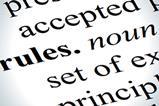Court of Appeal rules that litigants in persons can benefit from ‘without prejudice’ rule without knowing what it means.
What’s happened?
The claimants (Mr and Mrs Suh), acting as litigants in person, brought a claim against the defendant landlord for alleged wrongful forfeiture of a lease.
During the proceedings, Mrs Suh attended two meetings with the defendant’s solicitor. The defendant claimed that during the meetings, Mrs Suh admitted that they had been in rent arrears when the defendant re-entered the premises.
During the trial, the defendant sought to admit a witness statement from its solicitors, which outlined what had been said during the meetings and in two attendance notes.
At first instance, the judge held that the statements were not made during a without prejudice meeting. Therefore, privilege did not attach, and the statements were admitted as evidence. The claimants’ claim was dismissed, and they subsequently appealed on the basis that the judge had erred in rulling that the alleged admissions were not protected by without prejudice privilege.
The defendant raised three arguments in answer to the appeal.
(1) The interviews were not without prejudice, because their purpose was not to negotiate a settlement of the proceedings.
(2) Even if the interviews were prima facie without prejudice, the cloak of privilege should be denied to the claimant tenants because they are using it for perjury.
(3) Any privilege had been waived by: the promulgation of Mrs Suh’s witness statement; the claimant’s decision to cancel the hearing fixed to decide admissibility; and the claimants’ counsel’s email stating that a case management hearing was unnecessary.
The claimants’ appeal was allowed.
Why is it important?
This case demonstrates the wide definition given to without prejudice meetings, and illustrates that the courts will not be easily persuaded to dilute the protection offered by without prejudice privilege.
How does this fit into existing law and practice?
As outlined within the judgment:
‘The “without prejudice” rule is a rule governing the admissibility of evidence and is founded upon the public policy of encouraging litigants to settle their differences rather than litigate them to a finish… The rule applies to exclude all negotoiations genuinely aimed at settlement whether oral or in writing from being given in evidence. A competent solicitor will always head any negotiating correspondence “without prejudice” to make clear beyond doubt that in the event of the negotiations being unsuccessful they are not to be referred to at the subsequent trial. However, the application of the rule is not dependent upon the use of the phrase “without prejudice” and if it is clear from the surrounding circumstances that the parties were seeking to compromise the action, evidence of the content of those negotiations will, as a general rule, not be admissible at the trial and cannot be used to establish an admission or partial admission.’
The Court of Appeal outlined the following.
(1) When considering whether the communications are ‘without prejudice’, the court will take an objective standpoint.
(2) Both parties must have or should have realised that the discussions were negotiations genuinely aimed at settlement.
(3) Without prejudice privilege can be denied where the exclusion of the evidence would act as a cloak for perjury, blackmail or other unambiguous impropriety. One example would be where a party threatened to give perjured evidence or was attempting to blackmail the other party, unless they accepted a settlement. However, in the present case, there was no evidence that Mrs Suh knew what without prejudice meant, let alone used it to tell lies.
(4) The test of waiver is not the same for legal professional privilege as it is for without prejudice privilege. The question of waiver did not turn on whether the claimants knew of the existence of the without prejudice privilege. The fact that they did not immediately raise the argument when the defendant sought to introduce the evidence should not be held against them.
In what ways does this affect practitioners?
- Where litigants in person are concerned, it may be difficult to determine objectively whether discussions are aimed at settlement.
- It is important to clearly outline whether discussions or correspondence are without prejudice.
- If there is a dispute as to whether communcations are subject to without prejudice privilege, it would be prudent to have the issue considered at a case management stage. Any appeal from that decision can then be considered prior to trial and will prevent the need for a re-trial, which was the outcome of the appeal in the present case.
Disclaimer
While we try to ensure the accuracy of the information provided, it does not constitute legal advice, and cannot be relied upon as such. The Law Society does not accept any responsibility for liabilities arising as a result of reliance upon the information given.






















